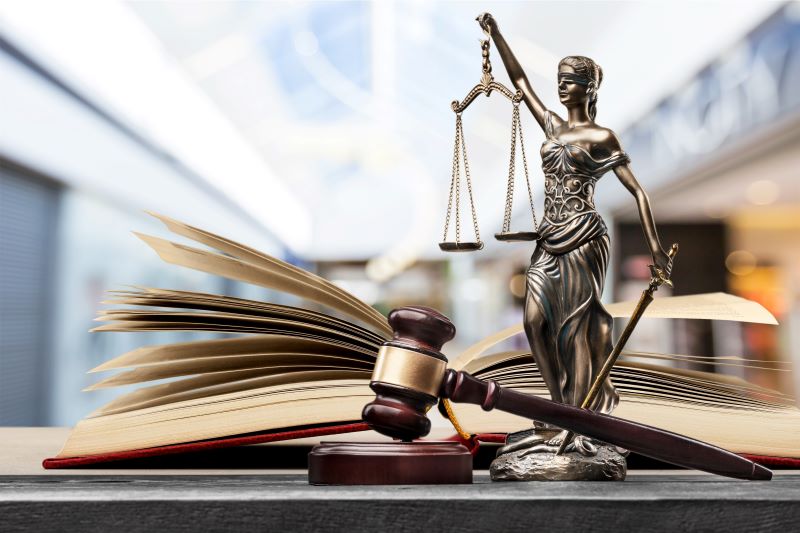
The Role of a Prosecutor in the Legal System
Prosecutors are essential figures in the legal system, tasked with the responsibility of representing the government in criminal cases. They play a pivotal role in ensuring that www.investingblog.org/ justice is served and that individuals who break the law face appropriate consequences. In this article, we will delve into the world of prosecutors, exploring their duties, challenges, and the impact they have on society.
Role and Responsibilities of a Prosecutor
Prosecutors are legal professionals who act as the advocate for the state in criminal cases. Their primary responsibilities include:
- Evaluating evidence to determine if charges should be filed against a defendant.
- Representing the state in court proceedings.
- Negotiating plea bargains with the defense.
- Presenting evidence during trials to prove the defendant’s guilt.
- Upholding justice and ensuring public safety.
The role of a prosecutor is vital in maintaining law and order in society. They serve as a crucial link between law enforcement and the courts, ensuring that the legal process is fair and just.
Qualifications and Training Required
To become a prosecutor, one must meet specific qualifications. Typically, they must hold a Juris Doctor (J.D.) degree, pass the bar exam, and gain experience as an attorney. Many prosecutors start as Assistant District Attorneys to gain practical knowledge before handling more complex cases.
The Importance of a Prosecutor in the Legal System
Types of Prosecutors
There are various types of prosecutors, each with its jurisdiction and responsibilities. Some of the key categories include:
District Attorneys
District Attorneys are responsible for prosecuting criminal cases within a specific geographic area, such as a county or district. They oversee a team of prosecutors and make critical decisions regarding which cases to pursue.
United States Attorneys
United States Attorneys are federal prosecutors who handle cases that violate federal laws. They work on behalf of the U.S. Department of Justice and cover larger regions, such as a state or group of states.
State Attorneys General
State Attorneys General serve as the chief legal officers of their respective states, representing the state government in legal matters. They often handle cases that affect the entire state.
The Prosecutor’s Decision-Making Process
Prosecutors have a significant influence on the outcome of criminal cases. Their decision-making process includes:
- Filing Charges: Deciding whether there is enough evidence to charge a defendant with a crime.
- Plea Bargaining: Negotiating with the defense to reach a plea agreement, which can result in reduced charges or sentences.
- Preparing for Trial: Building a strong case and presenting evidence in court.
This decision-making power comes with great responsibility, as it directly affects the lives of defendants and the safety of the community.
Challenges Faced by Prosecutors
Prosecutors encounter various challenges in their line of work, including:
- Ethical Dilemmas: Balancing the pursuit of justice with protecting the rights of the accused.
- Case Overload: Handling numerous cases, leading to long hours and high stress.
- Public Scrutiny: Facing criticism and public attention, especially in high-profile cases.
Despite these challenges, prosecutors are committed to upholding justice and maintaining law and order.
The Prosecutor’s Relationship with Other Legal Professionals
Prosecutors work closely with defense attorneys and judges. Their interactions with these legal professionals are critical in ensuring fair trials and effective legal processes.
Landmark Cases and Notable Prosecutors
Throughout history, prosecutors have been involved in high-profile cases that have shaped legal precedents. For example, the case of Roe v. Wade marked a significant moment in reproductive rights and was argued by the Texas District Attorney, Henry Wade. Additionally, notable prosecutors like Rudy Giuliani have gained national recognition for their work.
Balancing Justice and Advocacy
Prosecutors must balance their duty to uphold justice with their role as advocates for the state. This dual responsibility requires a commitment to fairness and integrity.
The Evolving Role of a Prosecutor
The role of a prosecutor is evolving in response to changing societal attitudes and legal reforms. Criminal justice reform movements and the adoption of restorative justice practices are influencing the way prosecutors approach their work.
The Prosecutor’s Impact on Society
The decisions and actions of prosecutors have a profound impact on society. They shape the criminal justice system and influence the lives of those involved in legal proceedings.
How to Become a Prosecutor
To pursue a career in prosecution, aspiring prosecutors must follow specific steps, including obtaining the required education, gaining experience, and passing the bar exam. It’s a demanding but rewarding path for those passionate about upholding justice.
Conclusion
In conclusion, prosecutors are the pillars of the legal system, ensuring that justice is served and that those who break the law are held accountable. Their role is multifaceted, requiring a delicate balance between advocacy and justice. The impact of prosecutors on society is immeasurable, making their work critical to the functioning of our legal system.







